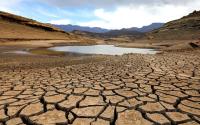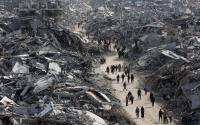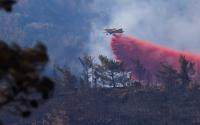28 April 2005The Financial ExpressTatyana Sinitsina
The gifts bestowed by the Creator are not something that Russia can take credit for. But the fact is that Russia is fabulously rich in natural resources, and this means it has a responsibility to other nations. Dmitry Lvov, member of the Russian Academy of Sciences, says: "Russia holds the key to the global environmental balance, and this is its historical role. Russia's natural resources per capita exceed those of the US by two to two- and-half times, those of Germany by six times and those of Japan by 18 to 20 times."
How Russia uses these resources is another matter. When it comes to forests, for example, Russia does not have an exemplary record. Russian forests, which account for 22% of the world's wooded area, are one of the country's key resources. The Russian forest zone covers 10,000 km, extending from the Pacific to the Gulf of Finland. These "green lungs" diligently absorb carbon dioxide (15% of global emissions), and emit about the same amount of oxygen. As 'wind roses' show, the air pollution from the industrialised West drifts to the east, into Russia, where it is processed by Russia's forests. This is why countries like Britain and Germany, where nature can no longer provide the population with oxygen, call Russia their "oxygen bag."
The second reason for the global significance of Russia's forests is that they have been preserved in a near natural state. Only a third of Russia's forests have been affected by economic activities, and most of these forests are to be found in European Russia. All the rest are virgin forests that have been untouched since creation. European Russia has the Kologrivsky Forest. Situated in the Kostroma region, this forest is unique not only because it is a 'model' for its natural zone, but also because historical documents show that in almost 400 years it has never been touched by logging or fire.
Russia's coniferous forests are known for their biological diversity. Forests in the Far East and Siberia are home to more than 3,000 species of plant, animal, bird, insect, moss, lichen, etc. There are more than 2,000 species in the forests in the Altai territory and the Caucasus, and more than 1,000 species are found in the forests in Central Russia. But, while biodiversity is being maintained, many people in the country are concerned about the commercial use of Russia's forests. Valery Roshchupkin, head of the Federal Forestry Agency, says the biggest problem is "the low level of forest utilisation."
The under-developed timber industry is unable to find markets for all of its lumber and sells only 21% of its products. Moreover, commercial activities are focused on raw materials. This encourages rapacious, criminal felling which affects homeostasis. Illegal logging causes about $1 billion worth of damage a year. On the other hand, as a result of inactivity by the timber sector, in some regions there are now a lot of over-mature forests, and these trees are more likely to become diseased.
Balancing commercial interests with the need for rational forest use and forest preservation is also problematic. "Of course the situation is unsatisfactory," says Roshchupkin. "Federal bodies are responsible for forest resources, but the 89 regional administrations are responsible for reforestation, and of course they don't do a good job. They restore just 17% of the cleared areas."
In the new Forest Code, which is currently being debated by the State Duma, these functions and responsibilities are properly distributed. The Forest Code draws on the experience of other "forest countries," in particular Finland and Sweden. It envisages a division of functions among local authorities, municipal administrations and the federal center.
For the first time since the October 1917 revolution, the term private property appeared in the country. The regulations pertaining to privatisation are clear: only a lessee who can prove that he has treated the forest properly for 15 years can acquire woodland. Businesses will have to perform all reforestation work at their own expense and will be held accountable for forest fires, the control of vermin, etc. But Roshchupkin says that "Privatisation will never be extended to forests in water conservation zones, environment protection zones, national parks or reserves."
So Russia will continue to act as the linchpin in the maintenance of the global environmental balance.
The writer is a RIA Novosti commentator






